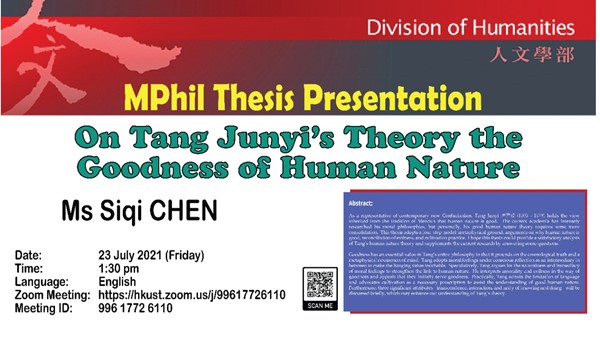Abstract:
As a representative of contemporary new Confucianism, Tang Junyi 唐君毅 (1909 – 1978) holds the view inherited from the tradition of Mencius that human nature is good. The current academia has intensely researched his moral philosophies, but personally, his good human nature theory requires some more consolidation. This thesis adopts a four-step model: metaphysical ground, arguments on why human nature is good, reconciliation of evilness, and cultivation practice. I hope this thesis could provide a satisfactory analysis of Tang’s human nature theory and supplements the current research by answering some questions.
Goodness has an essential value in Tang’s entire philosophy in that it grounds on the cosmological truth and a metaphysical noumenon of mind. Tang adopts moral feelings under conscious reflection as an intermediary in between to make the hanging value touchable. Speculatively, Tang argues for the naturalness and immediacy of moral feelings to strengthen the link to human nature. He interprets amorality and evilness in the way of goodness and appeals that they initially serve goodness. Practically, Tang admits the limitation of language and advocates cultivation as a necessary prescription to assist the understanding of good human nature. Furthermore, three significant attributes – transcendence, interaction, and unity of knowing and doing – will be discussed briefly, which may enhance our understanding of Tang’s theory.
https://engage.ust.hk/event/7134628
huma@ust.hk
